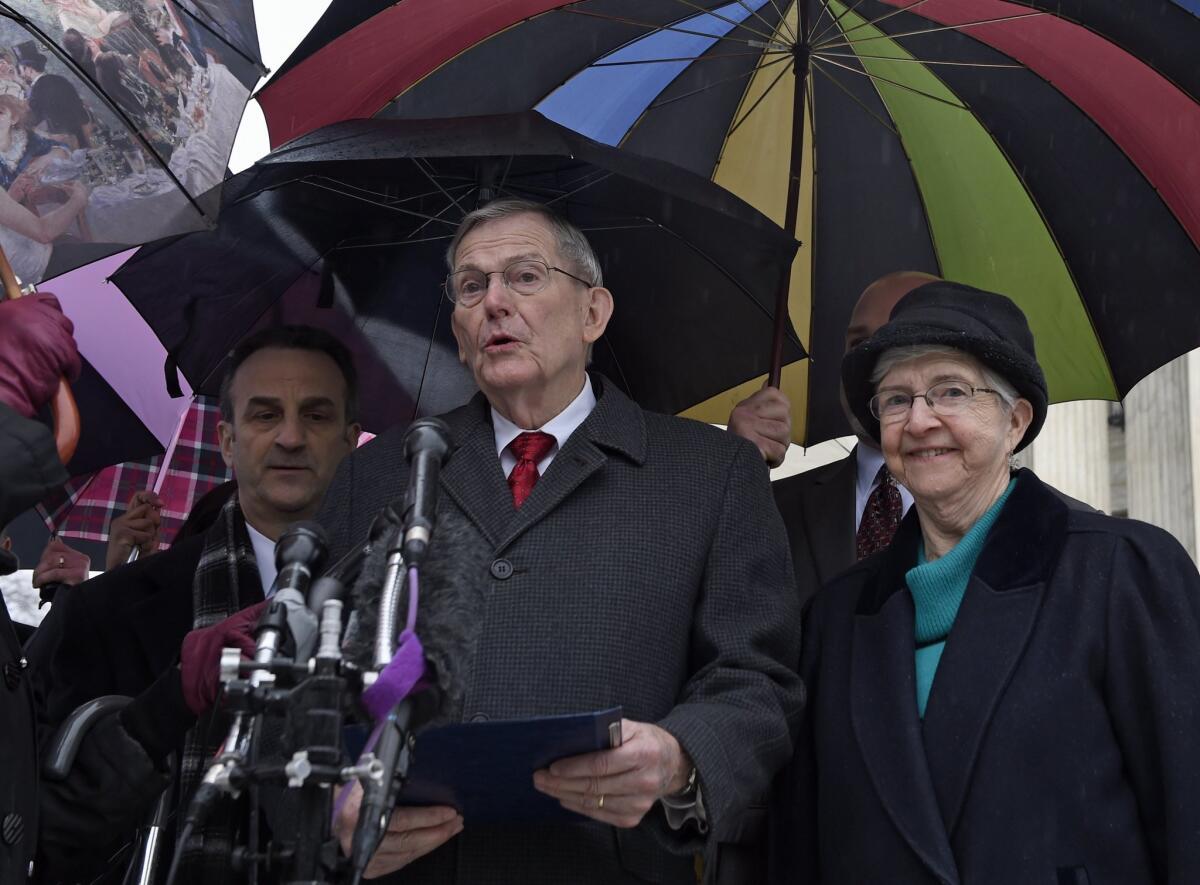Editorial: A sign of discrimination in Arizona town

- Share via
A sign posted on or near a public highway is an expression of speech, but it also can pose safety and aesthetic problems. A community should be free to regulate the distraction and clutter created by public signage so long as it doesn’t pick and choose on the basis of the signs’ content.
The town of Gilbert, Ariz., is being accused of engaging in just that sort of discrimination. On Monday, lawyers for a small church in the Phoenix area asked the Supreme Court to strike down an ordinance that imposed significantly greater restrictions on its roadside signs than on others. The justices should heed their plea.
The Good News Community Church lacks a permanent meeting place, so it relies on road signs both to invite people to pray and to provide directions to the site of that weekend’s services. But the signs — which the town classifies as “qualifying event signs” — may be no larger than 6 square feet and can be put up no earlier than 12 hours before an event (in this case a church service) and must be removed an hour afterward.
By contrast, signs the town classifies as “political” may be 32 square feet in size and can be displayed 41/2 months before an election and for 15 days after an election. Signs pointing motorists to a real estate sales event such as an open house may be erected 16 hours in advance and may remain for 36 hours after the event.
It’s well established that restrictions on speech are permissible under the 1st Amendment if they are truly content-neutral. The classic example is a blanket ban on sound trucks in the middle of the night that silences all speakers and all messages for a limited period of time. Gilbert’s policy is not content-neutral in that way.
As Justice Elena Kagan put it in an exchange with the town’s lawyer: “You are essentially saying, yes, we generally dislike clutter, but we’re willing to make exceptions for clutter for speech that we think has special 1st Amendment significance.”
A ruling for the church need not jeopardize previous court rulings upholding genuinely content-neutral regulations, such as those that treat free-standing billboards differently from signs attached to a place of business. It’s reassuring that the U.S. solicitor general argued that the court could decide in favor of the church without undermining the “more finely honed provisions” of a law restricting signs along interstate highways.
Such a ruling would remind local officials that, while they are free to regulate signs in the interests of safety and aesthetics, they need to make sure that they aren’t treating some messages more favorably than others.
Follow the Opinion section on Twitter @latimesopinion
More to Read
A cure for the common opinion
Get thought-provoking perspectives with our weekly newsletter.
You may occasionally receive promotional content from the Los Angeles Times.









